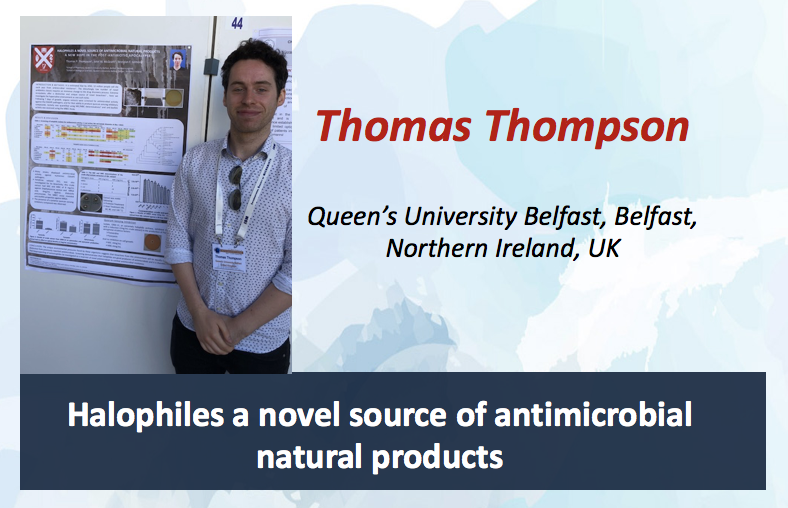During Phage Therapy & Antibiotic Resistance Congress 2018, Dr Thomas Thompson from Queen’s University Belfast, Belfast, Northern Ireland, United Kingdom presented a poster about “Halophiles a novel source of antimicrobial natural products”.

The aim of this study was “to establish the potential of extremely halophilic microorganisms from Kilroot Salt Mine, Northern Ireland, as a novel source of natural product chemistry with the objective to eventually isolate and structurally elucidate original anti-infective compounds from this unique microbiome. […]”
Dr Thompson demonstrated that “Bio-assay guided fractionation of crude extracts is on-going. Halophiles remain a promising reservoir possessing broad antimicrobial activity, and there is no doubt that exploitation of extreme environments have an important role to play in AMR.”.
 From her side, Dr Nika Janež from the Centre of Excellence for Biosensors, Instrumentation and Process Control, Ajdovščina, Slovenia presented the “Characteristics of healthy and acne human skin colonization by bacteriophages of propionibacterium acnes and staphylococcus epidermidis and their hosts”.
From her side, Dr Nika Janež from the Centre of Excellence for Biosensors, Instrumentation and Process Control, Ajdovščina, Slovenia presented the “Characteristics of healthy and acne human skin colonization by bacteriophages of propionibacterium acnes and staphylococcus epidermidis and their hosts”.According to Dr Janež: “Propionibacterium spp. and Staphylococcus spp. were identified as the predominant and stable inhabitants of healthy human skin. They are considered to be commensal microorganisms though they are associated with development of acne and clinically relevant infections. We aim to determine Propionibacterium acnes and Staphylococcus epidermidis co-colonization characteristics of human skin potentially playing a role in health or disease of the human skin. […] Our small scale study results suggest that P. acnes, S. epidermidis and their bacteriophages are able to co-inhabit healthy human skin, but on acne skin this balance seems to be altered. The bacteriophages were examined more in detail to evaluate their possible ecological and therapeutic potential.”
The scientific committee
